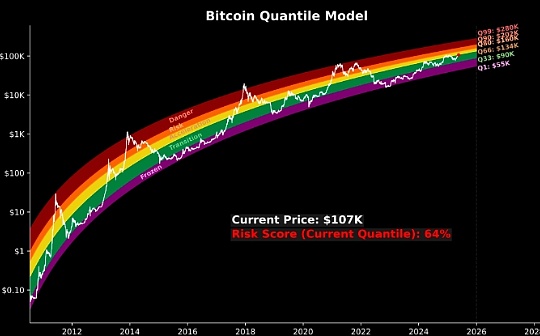Bybit's launch of US stock trading has caused controversy, clarifying the compliance issues behind "coins sold" in one sentence

Reprinted from chaincatcher
05/22/2025·24DAuthor: Scof, ChainCatcher
Edited by: TB, ChainCatcher
On May 19, Bybit announced it was the first major cryptocurrency exchange to support the use of USDT to directly trade global stocks.
But then KOL Crypto Fearless pointed out that Bybit is not the only cryptocurrency exchange in the world that provides stock trading, which once sparked heated discussions in the community.
Controversy 1: ****Not the world 's first cryptocurrency exchange
to support U.S. stock trading****
Although Bybit claims to be "the only cryptocurrency exchange in the world that supports stock trading" in official publicity, this is not the case.
As early as 2020, the bankrupt FTX launched stock tokens and forex trading services, allowing users to indirectly invest in US stocks with crypto assets and map them through on-chain tokens. Earlier, eToro, Bitpanda and other platforms have also opened up product channels between cryptocurrencies and traditional securities markets. Although the product mechanism is slightly different, Bybit is not a pioneer in the positioning of "encryption platforms provide stock trading".

Controversy 2: It is not buying real stocks, but ****trading
services**** through CFD
Bybit launches this stock trading feature, mainly through its MT5 platform, to provide users with stock contracts of difference (CFD) trading services. The specific working principle is: the user creates an MT5 sub-account within the Bybit platform, injects capital into the account with USDT, and then "trades" stocks in the form of a CFD in the system. In fact, users do not obtain ownership of these stocks and will not have any shareholder rights. To some extent, it is more like users betting on price increases and falls, and the platform or its partner market makers assume the liquidity role. (After checking the Bybit official website announcement, there is no clear explanation of which market maker will provide the transaction depth)
Regarding CFD, it is essentially a derivative trading tool, full name is Contract for Difference, which is "CFD", which allows users to trade based on changes in asset prices without having to hold the asset itself. This mechanism is more common in traditional finance, but the premise of using this mechanism is that the platform must hold a relevant derivative trading license.
According to public information, Bybit has obtained licenses including Dubai VARA, Cyprus CySEC, Georgia VASP. In addition, it has obtained pre-approved licenses from Kazakhstan AFSA and UAE SCA, and is promoting MiCA-related applications in France. However, it has obtained licenses mainly covering crypto assets and CFD fields, and does not constitute legal access to the US securities market.
In this regard, Guo Yatao, director of the Digital Economy Committee and partner lawyer of Beijing Strategy Law Firm, told ChainCatcher that the current regulatory system in the United States itself is designed for traditional securities trading products and models, and it is difficult to fully and effectively cover new financial products and trading mechanisms including stablecoin settlement and contract of difference (CFD) structure. Under the premise that the legal application standards have not been updated, such businesses are difficult to meet regulatory requirements and will inevitably face a non-compliance.
At present, the official announcement of Bybit does not show any information about the tripartite asset management institutions responsible for undertaking Bybit's stock trading business, as well as specific liquidation path descriptions.
As a platform, revealing a clearer and clearer product mechanism is an important measure to make users feel at ease. Therefore, ChainCatcher will continue to pay attention to Bybit's subsequent official announcements and other information to supplement relevant information for investors who are paying attention to the product.
****Regarding crypto companies involved in U.S. stock-related businesses,
compliance is still a huge challenge****
Of course, Bybit is not an isolated case. Crypto native companies are facing compliance challenges in traditional stock and bond markets.
At present, crypto exchanges are involved in the mainstream product mechanism of the traditional securities market. They are usually not holding real shares, but rather achieve price mapping through the aforementioned contracts of difference (CFD), price tracking derivatives or stock tokens.
In actual operation, different platforms have built different product paths and compliance strategies based on their respective regulatory positioning and business models.
For example, Robinhood, which mainly relies on the domestic regulatory system of the United States, is regulated by the SEC and FINRA, and its crypto business has also obtained a virtual currency license in New York State. Its "zero commission + compliance clearing" model is very popular among young users.
eToro supports users to invest in U.S. stocks, ETFs, foreign exchange and other assets in the form of fiat currency or cryptocurrency, and holds regulatory licenses in multiple jurisdictions. Stock transactions adopt a coexistence of real stocks and contracts of difference (CFD). Bitpanda provides users with broken stock trading based on derivative agreements through the so-called "Bitpanda Stocks" service, and it relies on the market maker mechanism to provide liquidity support, and it clearly states that the user does not actually hold stocks, but is participating in price-tracking financial contracts.
The following figure shows a comparison of the encryption platform mechanisms that support US stock trading:

In fact, compared with traditional securities companies, if cryptocurrency exchanges want to provide stock trading services legally, they face more than one license. They also involve regulatory differences in different jurisdictions.
For example, in the United States, any platform involving securities trading needs to obtain a license from the securities dealer or alternative trading system (ATS) and accept continuous supervision by the SEC and FINRA. Transaction data must be included in compliant clearing agencies such as the DTCC system. The platform not only needs to disclose the whereabouts of users’ funds, but also must explain the transaction execution path and asset custody method. Otherwise, even if the platform itself is not in the United States, as long as the business is opened to American users, it may be considered as providing securities services illegally.
In addition, even in some areas with relatively loose compliance, such as Dubai, Singapore, Mauritius, etc., crypto exchanges must apply for a specific financial service license and establish an independent entity to provide stock CFD services.
Take Bybit as an example. Its current use of MT5 platform services is operated by Infra Capital Limited, and its registered address is in Mauritius, but the entity has not clearly announced what kind of financial license it holds locally. In addition, Bybit also stated in the user agreement that if there is a disputed arbitration, it will be accepted by the Singapore International Arbitration Center, which further increases the complexity of its legal subject structure, and to a certain extent, it also increases the threshold and cost of users' rights protection, and blurs the user's rights protection path.

In response, ChainCatcher learned when consulting with Lawyer Bai Jun, the head of Mankun's Hong Kong office, that the CFD services provided by the cryptocurrency exchange are restricted in most countries, especially the EU, the UK, Japan and South Korea, or require the platform to hold local derivatives sales qualifications. Therefore, the use of the propaganda statement "USDT directly trades US stocks" is likely to cause unnecessary misunderstandings from a regulatory perspective.
Lawyer Guo Yatao also pointed out that financial licenses have national boundaries and geographical restrictions, and Dubai's VARA license cannot authorize the provision of securities products to US users. At the same time, he also reminded that in the judicial field, the United States pursues the "long-arm jurisdiction" system and has a protective jurisdiction principle. As long as the service objects include American users, the platform may be regarded as a violation of local financial regulations. At this stage, the combination of "stablecoin + CFD + US stocks" is still in a regulatory vague zone and lacks a clear basis for compliance.
In general, for crypto companies that want to get involved in traditional financial businesses, compliance is not only a licensing issue, but also involves a complete regulatory system. On the one hand, enterprises need to establish a strict KYC and AML system to monitor user identity and trading behavior; on the other hand, they need to set up trading rules to prevent market manipulation and abnormal fluctuations, and set restricted areas to block users who do not meet local regulatory requirements.
In the final analysis, it is the issue of cryptocurrency exchange
transformation " landing "
At present, global supervision is gradually becoming clearer, but it is gradually becoming stricter. As traditional financial institutions accelerate their entry, native cryptocurrency exchanges want to "get ashore" to transform, and their options are relatively limited.
One way is to get close to sovereign capital and policy resources. Like Binance, it has continued to strengthen its Middle East layout in recent years. Just in March this year, Abu Dhabi state-owned capital MGX announced that it would invest US$2 billion in Binance, becoming a key supporter of Binance in the global compliance restructuring process.
Recommended reading: " Why did Binance raise $ 2 billion in funding by the UAE royal family? 》
The other is to cooperate with large institutions that have achieved compliance status. The previous acquisition of crypto options exchange Deribit by Coinbase for US$2.9 billion is a typical case.
Recommended reading: " US$ 2.9 billion refreshes the largest acquisition in the history of crypto: Why did Deribit retreat? 》
Finally, it is a way to establish a legal and compliant trading system by applying for multiple financial regulatory licenses, including securities, payments, CFDs, custody, etc., but this path is very costly.
Taking "online US stock trading" as an example, the exchange needs to solve a complete set of regulatory closed loops such as securities definition, license ownership, transaction execution path, clearing and custody, KYC/AML process, and user geographical isolation.
Taking Hong Kong as an example, if a crypto exchange wants to complete a compliance application, it faces not only the difficulty of approval, but also the high costs from multiple dimensions. According to a previous interview with Mr. Liu Honglin, a lawyer at Mankun Law Firm , in terms of capital costs , the initial investment in license application may be as high as HK$30 million to HK$40 million, and the annual compliant operating cost is approximately HK$20 million; in terms of labor costs , the platform needs to form a legal and compliance team locally and hire qualified licensed responsible personnel (RO). In addition, infrastructure construction such as cold wallet deployment, data audit, user asset isolation, and risk management systems are also needed.
Bybit co-founder Ben also mentioned in a podcast that the United States has high regulatory costs and high risks, and is not worth investing. Therefore, since its establishment, the company has deliberately stayed away from the US market and even did not hire employees who hold American green cards.
But in the long run, it is an inevitable trend for native crypto exchanges to embrace compliance, and "stocks sold by coins" may be just one small step.


 jinse
jinse

